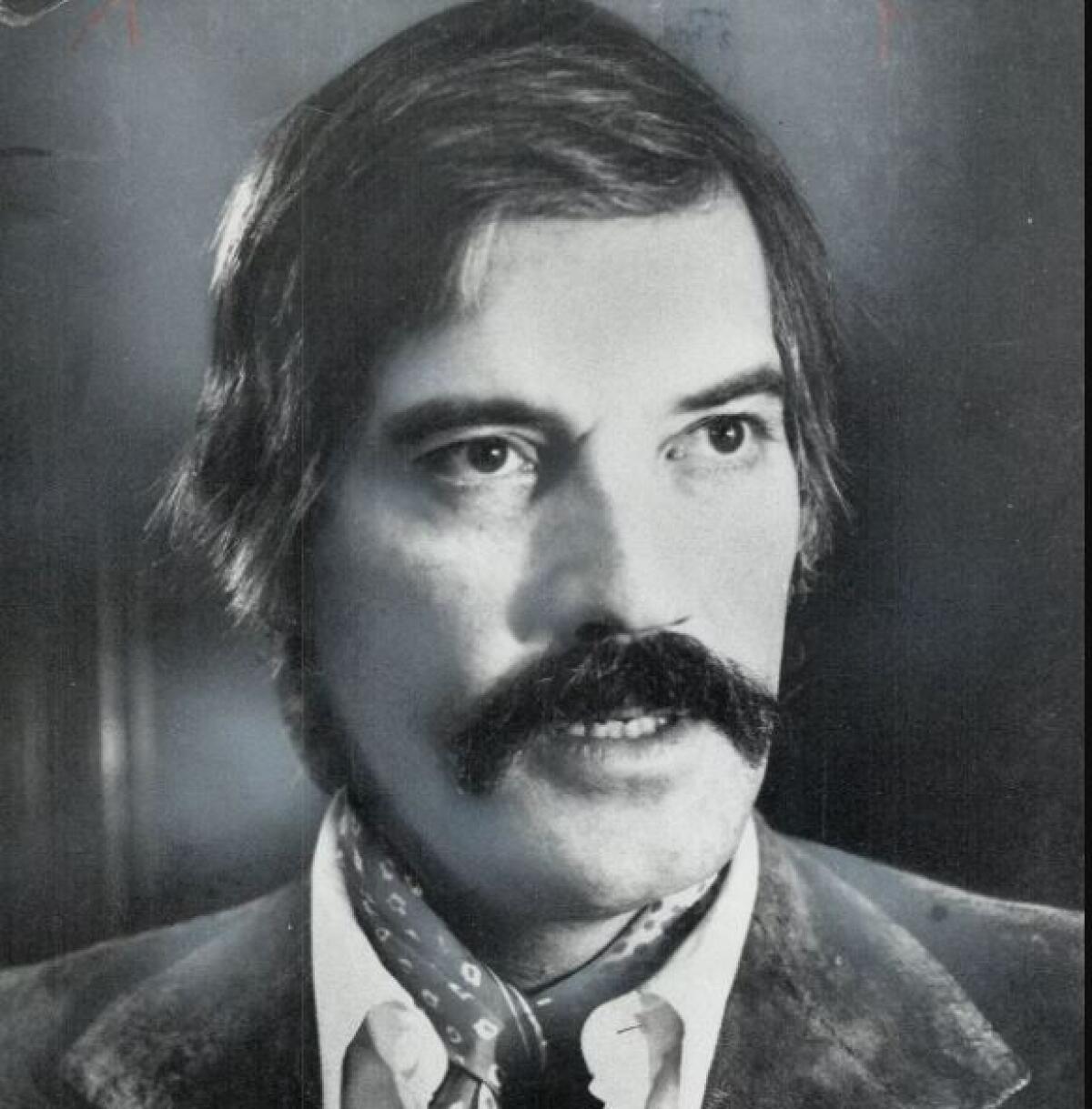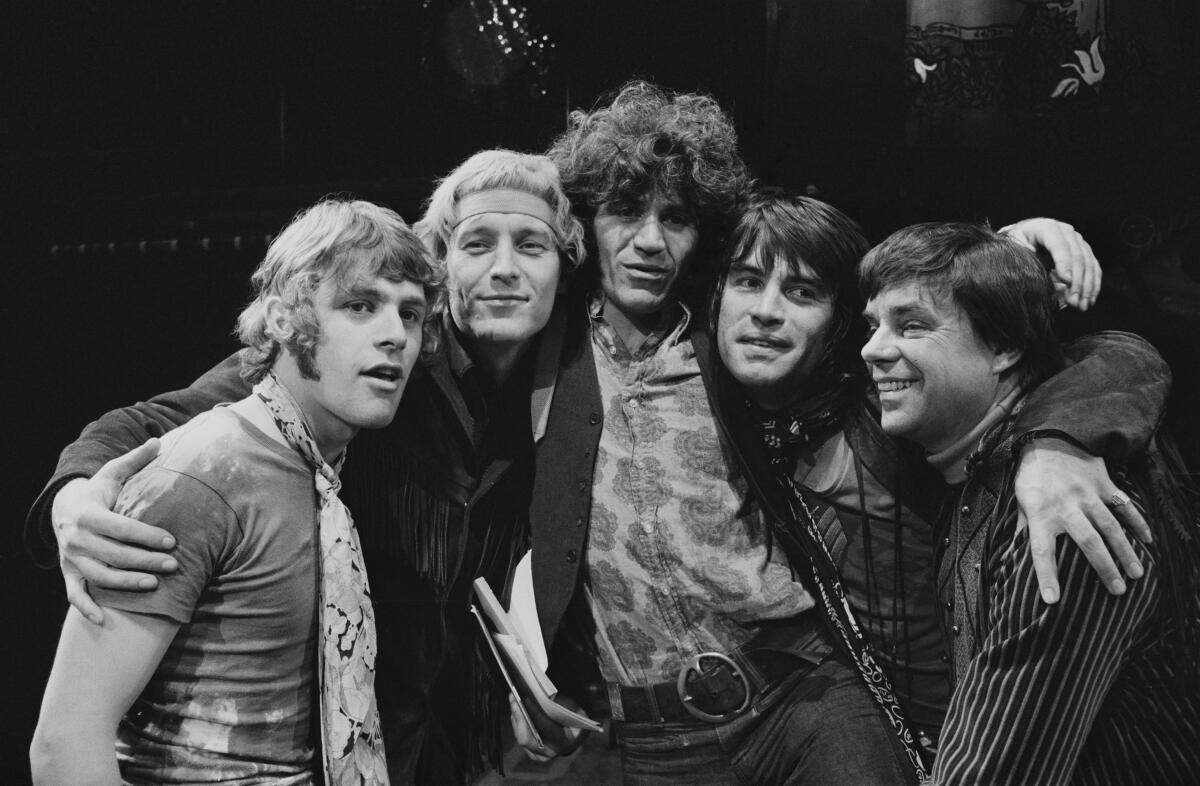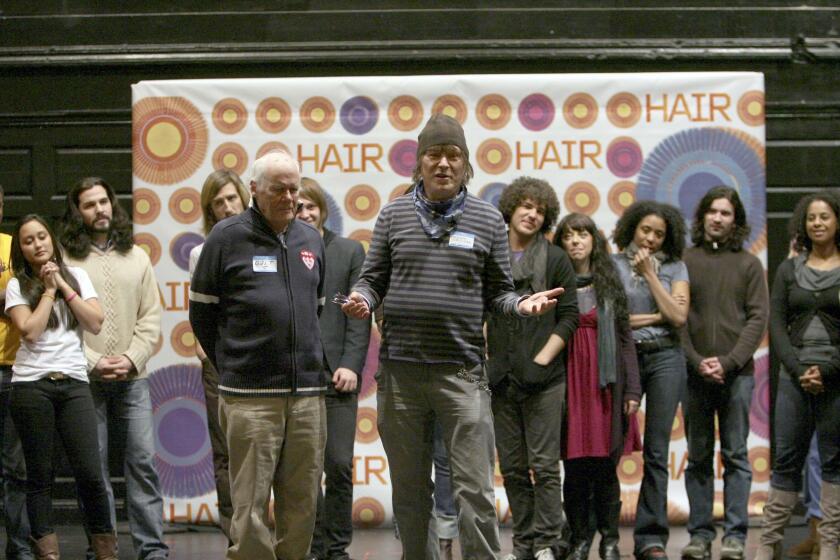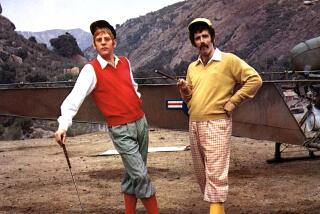Michael Butler, the millionaire hippie who brought the musical ‘Hair’ to Broadway, dies

Michael Butler, the free-spirited producer who brought the counterculture musical “Hair” to Broadway, where it broke norms with its celebration of pot, protest and free love, has died at a nursing facility in Los Angeles.
A self-described bon vivant who filled his days with polo matches, romantic involvements, adventuresome business deals and left-leaning political causes, Butler died Nov. 7 at age 96, said Zia Wesley, Butler’s friend and biographer.
Butler, who’d served as an advisor to President Kennedy, was contemplating a run against Everett Dirksen, the gravel-voiced Illinois senator, when he saw an off-Broadway production of “Hair.”
“I was blown away,” Butler later said. “It was the strongest antiwar statement I had ever seen.”
Butler immediately gave up his political aspirations, reworked the show’s book, added the famous nude scene, made the ending more upbeat and nearly doubled the number of songs in the production. Beginning in 1968, the rock musical ran on Broadway for 1,742 performances, spawned more than two dozen other productions, was nominated for a Tony and won a Grammy for best score. The Los Angeles production at the Aquarius Theater ran for two years.
In most every way, “Hair” was a full hippie baptism with its psychedelics, tie-dye costumes, tribal gatherings and Age of Aquarius ethos. Theatergoers were invited onstage for a be-in finale with the racially integrated cast. Songs such as “Let the Sunshine In,” “Aquarius” and “Good Morning Starshine” became anthems for the counterculture movement and the soundtrack became commonplace in dorm rooms across America.

“What is so likable about ‘Hair’? I think it is simply that it is so likable. So new, so fresh, and so unassuming, even in its pretensions,” wrote Clive Barnes in the New York Times.
As the musical opened across the nation, Butler was generally involved with every production, occasionally joining the cast onstage. “I did the nude scene in San Francisco. I was living with two of the cast members,” he told the Chicago Tribune.
Butler estimated he made $10 million from the musical and then careened through the ’70s, a regular on the party scene, arriving in a chauffeur-driven Rolls-Royce and flying on a private jet. He invested in a roller rink, a soccer club and a reggae band and gave hundreds of thousands of dollars to liberal causes. Hard to miss at 6-foot-4 with shoulder-length hair and a bushy mustache, Butler glided easily in a world of Hollywood celebrities, aristocrats and rock stars.
Born Nov. 26, 1926, in Chicago, Butler and his two siblings were raised in a family of great wealth. Butler’s father and grandfather founded the Chicago suburb of Oak Brook and the tony Oak Brook Polo Club, which Butler and a sister later managed. He also became a champion-caliber polo player and traveled the world to attend matches.
With his bountiful connections, he walked into politics, serving as an advisor to President Kennedy on the Middle East; he also managed Illinois Gov. Otto Kerner’s reelection campaign and was a commissioner for the Port of Chicago. Prior to the Democratic Convention in Chicago in 1968, Butler brokered a meeting between Yippie co-founder Abbie Hoffman and Chicago’s mayor, Richard J. Daley, hoping to form a left-leaning political bloc.
James Rado, co-creator of the groundbreaking hippie musical ‘Hair,’ which paved the way for the sound of rock on Broadway, has died.
“I told him that the city should smother the Yippies with tender loving kindness,” Butler said he told Daley. “He decided to go a different way. And what did we get? Richard Nixon.”
With the enormous success of “Hair,” Butler felt free to back other productions. Some, like the Lenny Bruce-inspired “Lenny,” worked. Others, such as the Caribbean-hued “Reggae,” did not. He also helped produce the flower-power film “You Are What You Eat.”
For years Butler battled his siblings over their father’s fortune, estimated at one time to be as much as $100 million, though some said the valuation was far less. Whatever it once was, by 1991 it was mostly gone and Butler declared bankruptcy and sold off his possessions to help cover his debts.
“Twenty years ago,” he told the New York Times, “I had five houses, one with 15 bedrooms, but I found that possessions are a responsibility. I wanted to live more simply. After all, I built my life on nonmaterialism, on `Hair.’”
And “Hair” continued to provide. There was a movie and a long string of stage revivals. At the time of his death at the Los Angeles Jewish Home for the Aging, Butler was working with producers on a updated production of the musical, which is set to open at the El Portal Theatre in North Hollywood next year.
Married three times, Butler is survived by his son, Adam, grandson, Liam and a sister, Jorie Butler Kent.
More to Read
The biggest entertainment stories
Get our big stories about Hollywood, film, television, music, arts, culture and more right in your inbox as soon as they publish.
You may occasionally receive promotional content from the Los Angeles Times.












